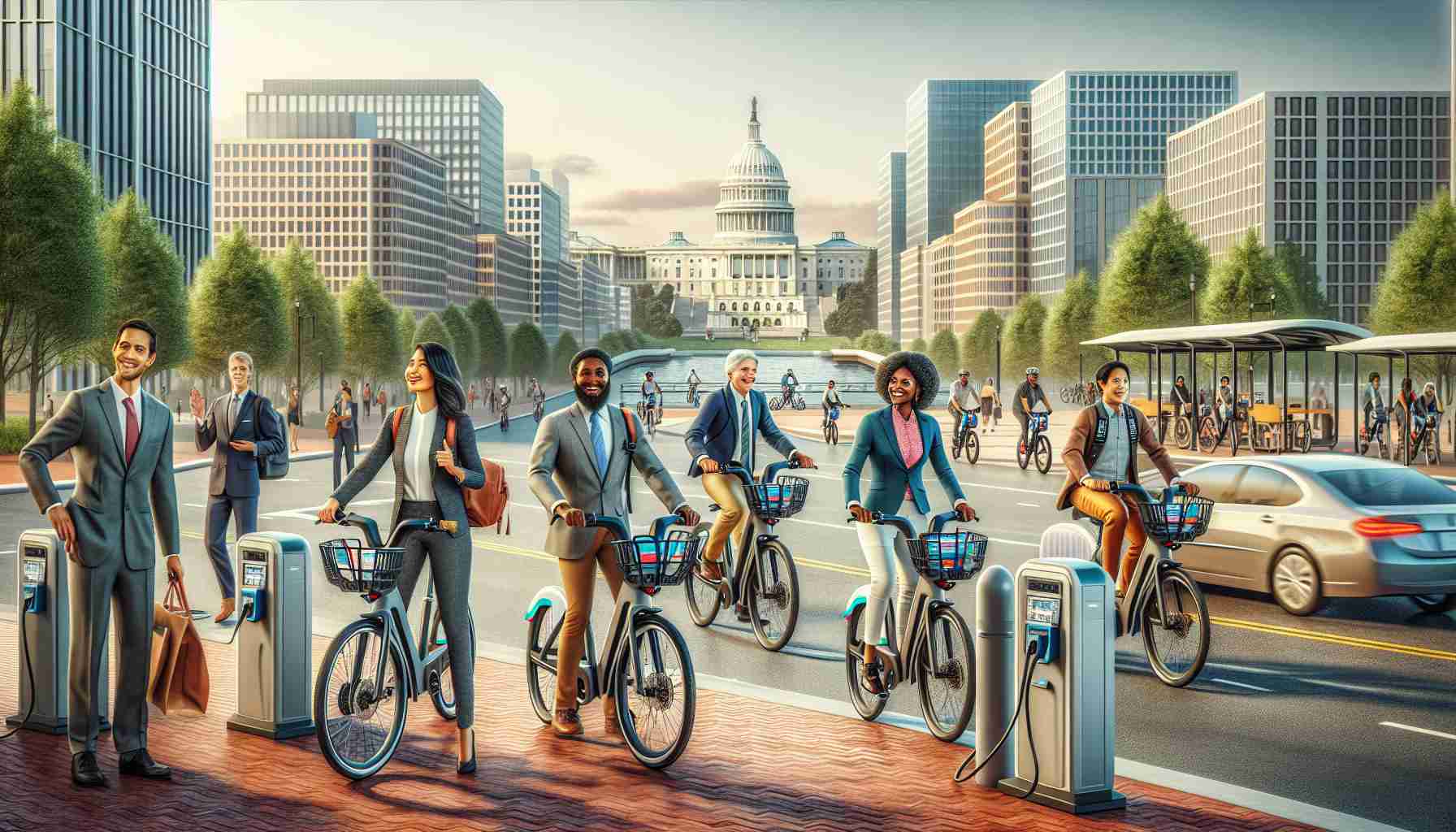Certain D.C. citizens now have a remarkable opportunity to revolutionize their daily commute with the introduction of an e-bike incentive program. Starting from April 1st, the District Department of Transportation (DDOT) will be accepting applications from preferred applicants, allowing them access to a voucher that significantly reduces the cost of purchasing an e-bike.
The implementation of this incentive program stems from a unanimous approval by the D.C. Council back in September. With a budget of $500,000, the program aims to address the barriers to sustainable transportation prevalent in underprivileged communities.
In an effort to ensure equity, the program is initially open only to preferred applicants. To be considered, applicants must be enrolled in SNAP, TANF, Medicaid, or DC Healthcare Alliance. Additionally, they must be over 18 years old and residents of the District, with the intention of purchasing an eligible e-bike, related service, or accessory.
During this application window, the DDOT plans to distribute 250 vouchers to the selected applicants. However, if there are remaining funds, another application window will open to the public.
The vouchers, which applicants will receive upon approval, can be used at 12 authorized local retailers. This decentralized approach ensures that recipients have a choice when it comes to purchasing their e-bike.
What sets this incentive program apart from others is the use of vouchers instead of later reimbursement. This innovative approach enables applicants to receive an upfront discount on their bike purchase, with the District directly reimbursing the retailer. By eliminating upfront costs, applicants from all financial backgrounds can take advantage of this opportunity.
The introduction of this e-bike incentive program in D.C. is part of a broader movement occurring across the United States. Inspired by Denver’s successful rebate policy, which has expanded since its inception in 2022, other states have passed similar tax incentives and rebates for e-bikes.
The hope is that by making e-bikes more accessible, it will not only promote sustainable transportation but also alleviate traffic congestion in the District. With pedestrian safety and long commutes being major concerns for residents, reducing traffic is of utmost importance.
To apply for the e-bike incentive program, individuals can submit their applications online or attend one of the pop-up events hosted by the DDOT throughout the District. For a full list of events and further information, visit the DDOT’s website.
With this exciting initiative, D.C. is taking a significant step towards a greener and more efficient future of transportation.
The e-bike industry has been growing rapidly in recent years and is projected to continue its upward trajectory. The market for e-bikes is expected to reach $46 billion by 2026, with a compound annual growth rate of over 9% during the forecast period. This surge in demand can be attributed to increasing environmental concerns, rising fuel prices, and a shift towards healthier and more sustainable transportation options.
One of the key issues that the e-bike industry faces is overcoming the perception that e-bikes are expensive and inaccessible. However, initiatives like the e-bike incentive program in D.C. are aiming to address this barrier and make e-bikes more affordable for a wider range of individuals. By offering upfront discounts through vouchers, the program eliminates the financial burden of purchasing an e-bike and encourages more people to consider this eco-friendly mode of transportation.
Another issue that the industry is working to overcome is the lack of awareness and education about e-bikes. Many people are still unfamiliar with the benefits and functionalities of e-bikes, leading to hesitation in adopting this mode of transportation. Therefore, it is crucial for organizations and retailers to provide information and educational resources to potential e-bike users, highlighting the advantages of e-bikes in terms of convenience, health benefits, and reduced environmental impact.
In addition to the e-bike incentive program in D.C., other cities and states across the country have also implemented similar initiatives to promote the adoption of e-bikes. For example, California offers a $1,000 tax credit for the purchase of an e-bike, while New York City provides a $400 rebate to individuals who purchase an e-bike through participating retailers. These incentives contribute to the overall growth of the e-bike market and encourage more people to choose e-bikes as a viable alternative to traditional modes of transportation.
While e-bikes offer numerous advantages, they also present challenges related to infrastructure and regulations. As the popularity of e-bikes continues to increase, cities need to invest in appropriate infrastructure, including designated e-bike lanes and charging stations, to support this mode of transportation. Additionally, regulations regarding e-bike usage and safety standards need to be established and enforced to ensure the smooth integration of e-bikes into existing transportation systems.
In conclusion, the introduction of the e-bike incentive program in D.C. is a significant step towards promoting sustainable transportation and addressing the barriers to e-bike adoption. The industry is poised for continued growth and market expansion, driven by increasing demand and favorable government policies. With ongoing efforts to raise awareness, improve infrastructure, and establish regulations, the e-bike industry is on track to revolutionize the way people commute and contribute to a greener and more efficient future of transportation.
For more information about the e-bike industry and related initiatives, visit eBike Industry.







